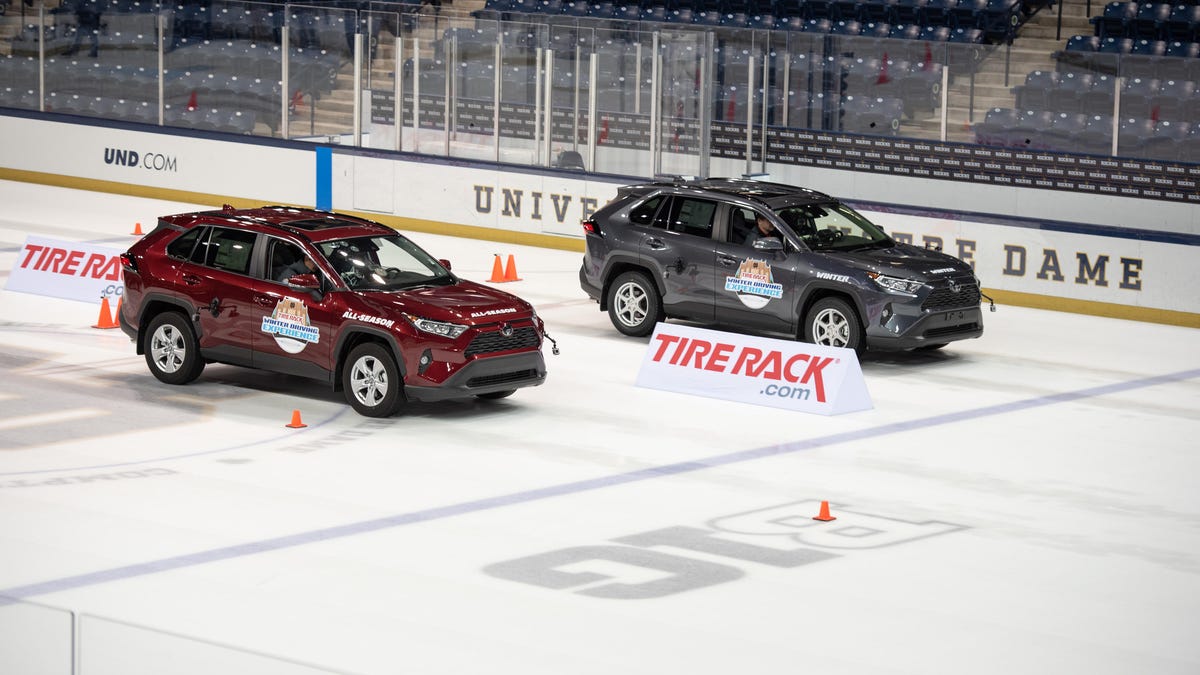How winter tires can make your vehicle safer
All tires are not created equal. For cold, slick conditions, winter tires are a wise investment.
With large portions of the country experiencing cooler temperatures and changing leaf colors, it unfortunately means old man winter is just around the corner. And to prepare for the colder conditions, motorists would be smart to give their cars a once-over. A fresh set of wipers, stocking up on windshield washer fluid and getting the battery tested and replaced if it's on the weak side are excellent ideas. Another one, which hasn't been widely adopted in America, is throwing on a set of winter tires.
Many folks are likely scratching their heads at the notion of investing in a set of winter tires, mostly because most cars are equipped with what are called "all-season" tires. While it's true that a set of quality all-seasons can be OK for some people, they're still not going to be anywhere near as effective as winter tires when the mercury drops and roadways get slick. To find out why that's the case, the folks at Tire Rack invited me to their South Bend, Indiana headquarters for some education about the differences between all-season and winter tires.
My day began with a crash course into tire development and construction. Contrary to popular belief, all tires are not created equal. Factors such as rubber compounds and tread designs all play a major role in a tire's performance.
When it comes to all-season tires, the rubber and tread pattern are developed to operate in a wide variety of conditions, be it cold, hot, dry or wet. An all-season tire's mission in life is to be serviceable in a wide variety of driving conditions. The problem there is that it's never going to excel in any single condition.
Winter tires on the other hand, like high-performance summer tires, are designed in a more focused manner. Rubber compounds are softer and developed to remain pliable in colder temperatures, while an all-season will firm up in cold weather. The design of the tread features taller blocks to better cut through slush and more sipes are molded into the tread blocks themselves, providing more biting edges and, thus, more grip.
To see the difference in performance between an all-season and winter tire first hand, Tire Rack brought me to the Compton Ice Arena on the campus of Notre Dame University. Here, I'd get to experience the differences in acceleration, braking and turning capabilities between a Firestone Destination all-season tire and Bridgestone Blizzak DM-V2 winter, on a Toyota RAV4 test car.
Under braking is where the winter tires begin to set themselves apart from the all-seasons.
In the case of the RAV4, all-wheel drive and electronic traction control are super helpful here, but the winter tires only improve the overall performance in slick conditions. When hitting the brakes at 14 mph -- on ice, remember -- the Blizzak-equipped RAV4 stopped 5.5 feet shorter than the all-season car.
The biggest difference was felt during turns. Both tires do a fine job making a typical, 90-degree turn at 9 mph. Punching things up to just 12 mph yields a drastically different outcome. The RAV4 on all-seasons plows forward off the coned course, while the test car on winter tires grips and completes the turn with zero issues.
The biggest argument for winter tires is safety. While the grip deficiencies of all-season tires can be masked well some all-wheel-drive and traction control systems, they don't help with braking or turning. Those situations rely mostly on mechanical grip from the only thing connecting a car to the road, which are the tires. Having the extra grip from winter tires in cold and slick conditions can be the ticket to avoiding a potential accident. If you live in a snow-belt state, winter tires are a solid investment.


